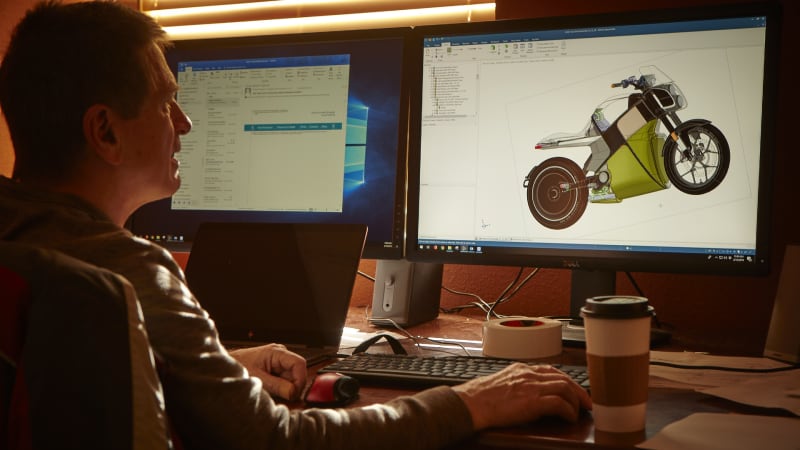
From his earliest days racing in superbikes from Ducati and Yamaha straight through his pioneering days at Harley-Davidson and the eponymous Buell Motor Company, Erik Buell certainly has had an interesting career in motorcycling. While Buell is surely best known to motorcyclists for the air-cooled, V-twin-powered sportbikes that were sold at Harley-Davidson dealers, his latest venture into electric two-wheelers is no less intriguing.
We recently had the opportunity to interview Erik and enjoyed a brief five-question electronic exchange with the racer, engineer and business partner as his latest company, Fuell, prepares to unleash its latest electric motorcycle to the public.
Autoblog: How has your engineering background helped you as you’ve transitioned from combustion motorcycles to electric?
Erik Buell: I think there are several things in my background that have helped the transition. First of all, I have always been a futurist … optimistic and positive towards change for the better. Secondly, my experience designing everything from 100cc commuters to s uperbikes gives me a wide range of exposure to many different rider types and rider needs as well as what solutions work for them. Thirdly I am a first principles engineer which has always helped me think out of the box.
AB: Same question but for racing: How has your racing background helped the transition?
EB: Interestingly I found successful involvement in high-level racing requires several attributes that make for better products and engineering on all types of vehicles. And it needs to be pro-level racing to have the effect. Fooling around with racing at an amateur level does little. First, it heightens your awareness of risks, dangers, and high stresses on vehicle components, because the results of mistakes are immediate. Secondly, you become very conscious of deadlines, because the race happens and if you are not ready you miss it. At a pro racing level, this is unforgivable. At a normal business level, racing experience makes you more aware that a Job 1 date is critical. Third, you learn that you want to win and that you are competing with others who want to win and who are also good. Fourth you have to be able to adapt to changing rules, changing technology, and surprises from competitors.